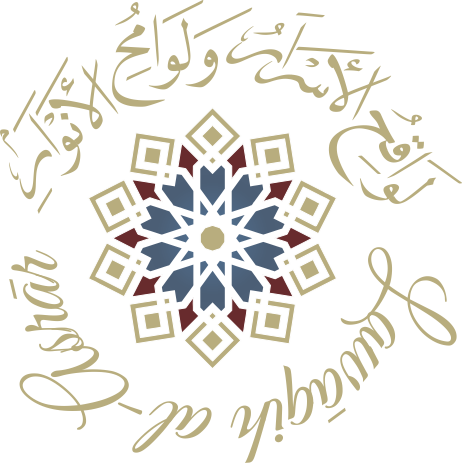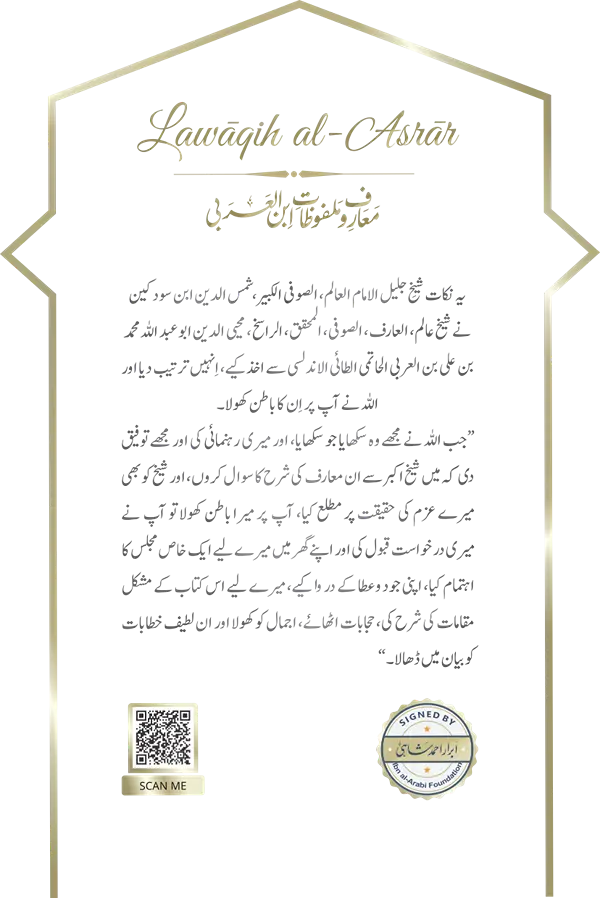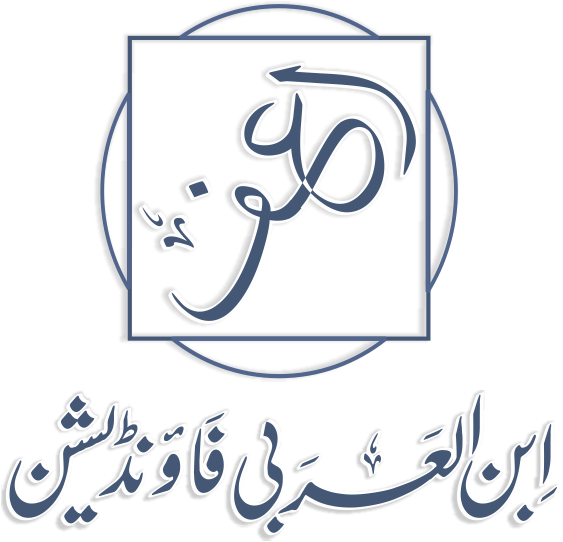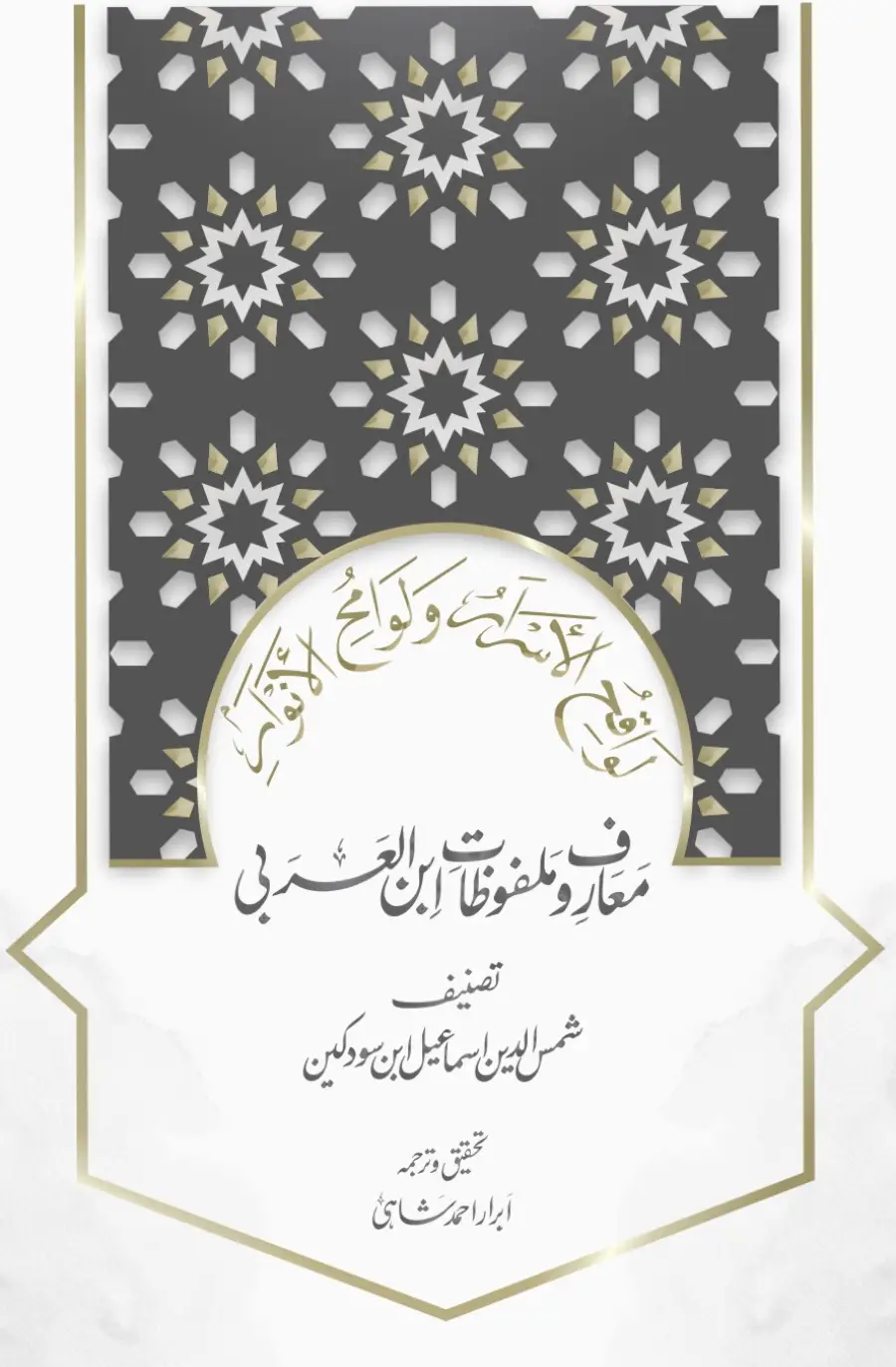Ma'arif o Malfuzat
Sayings of Ibn al-Arabi
By Shams uddin Ismail Ibn Sawdkain
The book “Malfuzat Ibn al-Arabi” is being presented today in its first Urdu translation, which is a collection of responses given by Sheikh Akbar to various questions posed by his close companions during their sessions. The author, Isma’il ibn Sawdkain Al-Nuri, was a servant and follower of Sheikh Akbar and has written commentaries on many of the Sheikh’s works, providing unique information as a close friend of the Sheikh. Through this book, readers will get an inside look at the assemblies of Ibn Arabi and gain an understanding of the discussions and topics covered during those times. The book also offers glimpses into Sheikh Akbar’s life, particularly during his time in Mecca, which have not been previously documented in other works.
7 Manuscripts
7 Key Manuscripts Collated from the most reliable global sources (Tier 1 & Tier 2).
472 Pages
Best Arabic Critical Edition, checked and collated with the best available manuscripts
Urdu Translation
Complete parallel Urdu translation, easy to understand and comprehend



Edition Highlights
The Ruh al-Quds fî munâsahat al-nafs is divided into three sections, each roughly equal in length, which include biographical accounts. However, the work also follows a thematic division that corresponds to the classic Sufi itinerary of mi’râj (ascent), ruju’ (return), and the divine sphere (mushâhada). Overall, the Ruh al-Quds fî munâsahat al-nafs is a valuable contribution to the Sufi tradition, offering both criticisms and insights into the spiritual path. In this book, Ibn al-Arabî is writing to his friend ‘Abd al-‘Aziz al-Mahdawî and expressing his admiration for his friend’s spiritual achievements. Ibn al-Arabî praises his friend for his acknowledgement and respect of knowledge and those who possess it, as well as his lack of desire for miracles or special spiritual states. He also notes his friend’s submission to God, humility, and respect for all people regardless of their social status.
Furthermore, Ibn al-Arabî admires his friend’s lack of concern for worldly praise or the attention of rulers, which he sees as a manifestation of just treatment. Ibn al-Arabî also praises his friend’s honesty in admitting when he doesn’t know something and his willingness to learn from others. He believes that his friend’s qualities are exceptional and deserving of admiration, with a station that is unaffected by fluctuating spiritual states and whose brilliance surpasses even supererogatory works.
Finally, Ibn al-Arabî notes his friend’s unique search for knowledge of humanity and time, and his belief that this knowledge is divinely necessary. Overall, this passage is a testament to Ibn al-Arabî’s appreciation for his friend’s spiritual qualities and achievements.
About this book
The book Malfuzat Ibn al-Arabi, now available in its first Urdu translation, compiles Sheikh Akbar’s responses to questions from his close companions during their sessions, as recorded by his devoted Mureed Isma’il ibn Sawdkain. It offers unique insights into Ibn Arabi’s assemblies, revealing previously undocumented aspects of his life, especially in Mecca, and explores the discussions and topics addressed in those gatherings. Through this work, readers gain an intimate perspective on the Sheikh’s teachings and interactions with his disciples. The book serves as a valuable resource for understanding Ibn Arabi’s legacy and the spiritual dialogues of his time.
Details
Arabic Title: لواقح الأسرار ولوامح الأنوار
Urdu Title: معارف وملفوظات ابن العربي
English Title: Malfoozat e Ibn al-Arabi
Author: Ismail Ibn Saudkeen
Translated by: Abrar Ahmed Shahi
Publisher: Ibn al-Arabi Foundation
Pages: 320
Paper Type: 70gsm IK imported
Year of Publication: 2022
Edition: 1st (2022)
Language: Urdu
Urdu Translation
By Abrar Ahmed Shahi
The first-ever complete Urdu translation, undertaken by Abrar Ahmed Shahi, co-founder of the Ibn al-Arabi Foundation. Leveraging 19 years of dedicated experience with Ibn Arabi’s works, this translation aims for both fidelity to the original Arabic and clarity for the Urdu reader.
معارف و ملفوظات ابن العربی
اللہ کا لاکھ لاکھ شکر کہ شیخ اکبر کے معارف و ملفوظات اولین اردو ترجمے کے ساتھ شائع ہو چکے ہیں۔ یہ شیخ کے مرید خاص اسماعیل ابن سودکین النوری کا مرتب کردہ مجموعہ ہے۔ یہ اُن اِشکالات کے جوابات ہیں جو شیخ وقتا فوقتا اپنی علمی مجالس میں اپنے قریبی ساتھیوں کو بتایا کرتے تھے۔ عبد اللہ بدر الحبشی کے بعد اسماعیل ابن سودکین ہی خادم اور مرید کی حیثیت میں آخری وقت تک شیخ اکبر کے ساتھ رہے۔ اسی صحبت میں آپ کو شیخ کی بہت سی کتب کی شرح شیخ کی زبانی سننے اور قلم بند کرنے کا موقع ملا۔ آپ نے شیخ کے حوالے سے بہت سی ایسی معلومات لوگوں تک پہنچائیں جو صرف کوئی قریبی ہی جان سکتا ہے۔ اس کتاب میں آپ حضرات مجالس شیخ اکبر کا ایک پہلو جانیں گے۔ آپ کو یہ معلوم ہو گا کہ شیخ اکبر اور ان کے ساتھی اُس دور میں کن معاملات کو ڈسکس کرتے اور شیخ سے سمجھتے تھے۔ ان ملفوظات میں ہمیں شیخ کی حالات زندگی کے چند ایسے گوشے ملتے ہیں جو کسی اور کتاب میں نقل نہیں ہوئے۔ خاص کر شیخ کے ابتدائی معاملات اور جب آپ مکہ میں قیام پذیر رہے، وغیرہ وغیرہ ۔ کتاب کا ترجمہ شستہ اور آسان رکھا گیا ہے تاکہ ہر کوئی سمجھ سکے، پھر ہم نے کتاب میں حاشیہ بندی پر خصوصی توجہ دی ہے۔ اکثر ملفوظات کے حاشیے میں اضافی معلومات دی گئی ہیں جن سے اس ملفوظ کا سمجھنا آسان ہو گیا ہے۔ مقصد یہ ہے کہ قارئین کو کچھ نہ کچھ بات سمجھ تو آئے۔ اللہ تعالی سے دعا ہے کہ ہر عام و خاص اس کتاب سے مستفید ہو اور علوم شیخ میں اپنا وہ حصہ پائے جو روز قیامت اُس کے کام آئے۔ آمین یا رب العالمین۔
ابرار احمد شاہی
The Editor & Translator
Abrar Ahmed Shahi
Abrar Ahmed Shahi is a distinguished Pakistani Sufi scholar, Editor & Translator, recognized globally for his dedication to the works of Shaykh al-Akbar Muhiyiddin Ibn al-Arabi. In 2007, he founded the Ibn al-Arabi Foundation, an organization committed to the preservation, translation, and dissemination of the Shaykh’s vast literary heritage.
With over 19 years of focused engagement, Shahi has translated more than 30 of Ibn al-Arabi’s major and minor works into Urdu, making these complex texts accessible to a wider audience. His annotated translations are highly regarded for their scholarly rigor, clarity, and sensitivity to the nuances of the original Arabic.
Spiritually, Abrar Ahmed Shahi has been under the direct guidance of Shaykh Ahmad Muhammad Ali (Egypt) since 2015, he now make bayat and introduce Shaykh’s Tariqa in Pakistan.
In summary his work bridges academic scholarship and traditional spiritual understanding.

